HOPE
The Hub at Oxford for Psychedelic Ethics
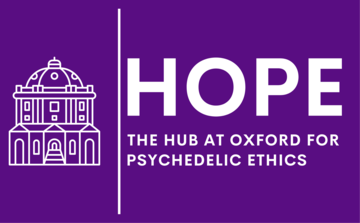
The Hub at Oxford for Psychedelic Ethics (HOPE) is a new interdisciplinary programme, which aims to develop sustainable frameworks for psychedelic ethics, law, and social policy.
Based within the Oxford-NUS Centre for Neuroethics and Society, the programme is directed by Oxford’s Brian D. Earp, with associate director David B. Yaden (Johns Hopkins) and in collaboration with Holly Fernandez Lynch (Penn), I. Glenn Cohen (Harvard) and Lori Bruce (Yale). The senior advisory directors are Professors Ilina Singh (Oxford), Neil Levy (Oxford), and Julian Savulescu (National University of Singapore).
Background
Psychedelics including psilocybin are being examined in scientific research for their potential clinical efficacy in treating mood and substance use disorders with approval for clinical use looking highly likely. Additionally, policies regulating psychedelic use are changing rapidly across the world, with several US jurisdictions easing criminal restrictions, and at least one state passing measures to permit administration of psilocybin in advance of federal rescheduling.
A number of clinical trials have established the profound––sometimes transformative––impact that psychedelic experiences can have on some people, and yet there are risks as well. These risks do not only operate at the level of the individual, but also at social-historical and political levels. The lack of appropriate ethical, social, legal and policy guidance was a major part of what caused the 1960s-era movement around psychedelics to fail, driving these substances underground, not only exacerbating otherwise manageable harms, but limiting their potential positive impact.
The current drive to conduct more rigorous science on psychedelics, though laudable, can only ever be part of the solution. Just as leading neuroscientists and other researchers are doing their part to guide the development of this crucial moment, leading ethicists, philosophers, and law and policy experts need to be involved at the ground floor.
Project Aims
-
Serving as an international academic and policy hub, bringing together leading researchers and other stakeholders throughout society to advance critically engaged and reflexive integration of psychedelic science with ethics, law, and policy.
-
Ethics-to-public policy pipeline, building practical working links with on-the-ground regulators, lawmakers, practitioners.
-
Foundational academic articles on psychedelic ethics, advancing to the bioethics community the notion of psychedelic ethics as a branch of medical- and bioethics of substantive importance and conceptual novelty.
-
Training the next generation of leaders in psychedelic ethics and policy through postdoctoral positions and PhD studentships, with opportunities to visit, collaborate with, and learn from cutting-edge work in psychedelic science and law at partner institutions.
-
Hosting an inaugural, then annual, global summit on psychedelic ethics, gathering together key figures from multiple sectors to produce up-to-date consensus statements outlining indispensable ethical, legal, and policy guardrails needed to safeguard the development of the psychedelic ecosystem – both medical and non-medical – and provide expert guidance to researchers, practitioners, industry.
-
Ongoing policy briefs to governments and non-profits to help guide the development of ethical and effective regulatory structures.
-
Public attitudes surveys and robust social science research tracking and understanding public responses to (and readiness for) novel uses of, and access to, psychedelics.
-
Responsible communication of psychedelic science and ethics through press releases, engagement with media partners, blog posts, podcasts, video explainers, and other multimedia approaches.
Key Researchers
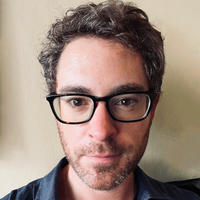
|
Programme DirectorBrian D. Earp, PhD, MSc, MPhil, is a leading neuroethicist based at Oxford with more than 10 years of research experience in psychedelic ethics. Brian is Co-Director of the Oxford Experimental Bioethics Lab, and Associate Director of the Yale-Hastings Program in Ethics and Health Policy, Yale University and The Hastings Center. Brian is also an Associate Editor of the leading Journal of Medical Ethics, published by the British Medical Journal (BMJ). Brian holds a PhD from Yale University in philosophy and psychology, an MSc from Oxford in experimental psychology, and an MPhil from Cambridge University in the history, philosophy, and sociology of science, technology, and medicine. Brian is co-author of Love Drugs: The Chemical Future of Relationships (Stanford University Press, 2020), the first mainstream book for a general audience focused on the ethics of psychedelic-assisted couples counseling, both at the individual and societal levels. |

|
Associate DirectorDavid B. Yaden, PhD, is the Roland R. Griffiths Professor of Psychedelic Research at Johns Hopkins University School of Medicine. His research interests include characterizing the acute subjective effects of psychedelics, investigating their capacity to impact well-being and worldview, as well as testing their treatment potential. He is leading a clinical trial on psilocybin and has published on ethical issues of psychedelics in venues such as JAMA. He is co-author of the book, The Varieties of Spiritual Experience with Oxford University Press. |

|
Lead CollaboratorHolly Fernandez Lynch, JD, MBE, is Assistant Professor of Medical Ethics and Law at the University of Pennsylvania. She pursues conceptual and empirical scholarship regarding clinical research ethics and regulation, access to investigational medicines outside clinical trials, and FDA pharmaceutical policy, especially early approval standards for diseases with unmet treatment needs. She is founder and co-chair of the Consortium to Advance Effective Research Ethics Oversight (www.AEREO.org), a collaborative effort to define, evaluate, and improve the quality and effectiveness of institutional review boards and human research protection programs. Her interests in psychedelics center on ethical research practices, research oversight, and models of access. |
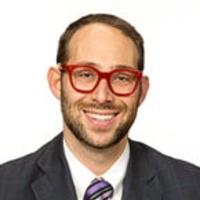
|
Lead CollaboratorI. Glenn Cohen, JD, is James A. Attwood and Leslie Williams Professor of Law, Deputy Dean of the Harvard Law School, and Faculty Director of the Petrie-Flom Center for Health Law Policy, Biotechnology & Bioethics. Professor Cohen is one of the world’s leading experts on the intersection of bioethics and the law, having written more than 200 articles and authored, edited, or co-edited more than 18 books on these topics. Cohen has published articles on the legal, ethical, and social policy implications of psychedelics in leading journals including Nature Medicine, Science, and Harvard Law Review. He also founded POPLAR (Project on Psychedelics Law and Regulation) the world’s first academic program focused on law and regulatory policy around psychedelics. |

|
Lead CollaboratorLori Bruce, D.Bioethics, HEC-C, is the Associate Director at the Interdisciplinary Center for Bioethics at Yale University, Founder of the Community Bioethics Forum at Yale School of Medicine, Affiliated Faculty at the Solomon Center for Health Law and Policy at Yale Law School, and Director of Yale University’s Summer Institute in Bioethics. Her work in psychedelics is informed by community ethics (which amplifies the voices and values of community members within health policy), trauma-informed principles, and post-colonized approaches, centered through values-informed policy analysis methods. Her work within psychedelics includes the design of organisational ethics frameworks: other work includes several years co-directing the Adult Ethics Committee at Yale-New Haven Hospital and legislative leadership on explicit consent. She is a Contributing Editor at the Hastings Center and Associate Editor for Disability, Inclusion, & Technology for the Journal of Human-Technology Relations. |
Our People
Senior Advisory Directors

|
Ilina SinghProfessor of Neuroscience & Society; Neuroscience, Ethics and Society (NEUROSEC) Lead; Co-Director of the Wellcome Trust Centre for Ethics and the Humanities (WEH); Distinguished Research Fellow: Oxford Uehiro Centre Professor Ilina Singh's research focusses on the social and ethical dimensions of research and innovation in neuroscience and psychiatry. |
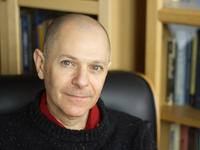
|
Neil LevyProfessor of Philosophy at Macquarie University, Sydney and a Senior Research Fellow at the Uehiro Centre for Practical Ethics, University of Oxford. Professor Neil Levy works principally at the intersection of philosophy of mind and psychology and ethics. He specializes in empirical approaches to ethics and social issues |

|
Julian SavulescuChen Su Lan Centennial Professor in Medical Ethics at the National University of Singapore, Director of the Centre for Biomedical Ethics (CBME), Co-Director of the Wellcome Trust Centre for Ethics and the Humanities (WEH) Professor Julian Savulescu is recognised internationally for his world-leading research into the ethics of future technologies. He held the Uehiro Chair in Practical Ethics at the University of Oxford between 2002 and 2022. |
Postdoctoral Research Fellow
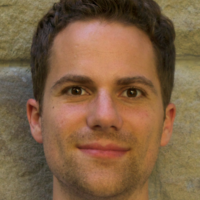
|
Daniel VilligerDaniel Villiger, PhD, is a philosopher with an interdisciplinary background and main interests in medical ethics, cognitive science, and decision theory. He holds a PhD in Philosophy from the University of Zurich, a PhD in Behavioural Economics from the University of St. Gallen, and an MSc in Psychology from the University of Zurich. As of 2024, he will be working on a project on the ethics of psychedelics at the University of Oxford (as a Hosted Research Fellow), funded by the Swiss National Science Foundation. His work on psychedelic ethics has been published in the Journal of Medical Ethics and the American Journal of Bioethics. |
Doctoral Students
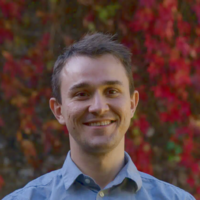
|
Eddie Jacobs is a DPhil student at the University of Oxford’s Department of Psychiatry, where he is undertaking Wellcome Trust-funded research on the bioethical dimensions of psychedelic-assisted psychotherapy. He previously worked at the Beckley Foundation, supporting its Psychedelic Science and Policy Programmes, and his collaborations with Drug Science include leading research into public attitudes on psilocybin, and contributing to its Medical Psychedelics Ethics Consortium. Alongside his DPhil, he has published in Neuroethics, and co-ordinated the development of the upcoming Hopkins-Oxford Psychedelic Ethics Consensus Statement. |

|
Katherine Cheung has a background in bioethics, and holds an MA in Bioethics from New York University. Her research interests include psychedelic bioethics and environmental ethics. Her recent work has been published in the Journal in Medical Ethics and the Cambridge Quarterly of Healthcare Ethics. |
Research Affiliates
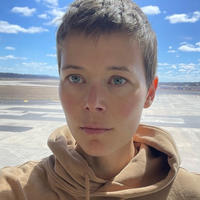
|
Mette Leonard Høeg, PhD, is a Carlsberg Foundation Postdoctoral Fellow at the Interacting Minds Centre, University of Aarhus, an academic visitor at the Oxford Uehiro Centre for Practical Ethics and associated fellow at the Centre for Eudaimonia and Human Flourishing, University of Oxford. With an interdisciplinary background in literature, narrative theory and philosophy, her work currently focuses on the ethical and existential dimensions of modern consciousness research, with a special interest in the potential of psychedelics for enhancement of morality and wellbeing. She is the author of Uncertainty and Undecidability in Twentieth Century Literature and Literary Theory (Routledge, 2022). Her paper “The Value of Literature for Consciousness Research and Ethics” was published in the Journal of Consciousness Studies. She is co-editor of a forthcoming special issue of Neuroethics based on the international conference she convened at the University of Oxford in 2023: Consciousness. An Interdisciplinary Perspective. She has also published extensively on neurophilosophical and -existential issues in various news and public media, magazines and blog posts. | |

|
Sebastian Porsdam Mann is a postdoctoral researcher at the Center for Advanced Studies in Bioscience Innovation Law at the University of Copenhagen. His background is in philosophy, neuroscience, applied ethics (BA, PhD, University of Cambridge) and international human rights law (DPhil pending, University of Oxford). He has held postdoctoral positions at Harvard Medical School and the Universities of Oxford and Copenhagen, the latter supported by a personal grant by the Carlsberg Foundation. His work focuses on the practical potential and regulatory conditions necessary for novel technologies to facilitate scientific progress and normative goals, with a focus on blockchain, generative artificial intelligence, and the human right to science. He is co-author/editor, recently, of The Right to Science: Then and Now (Cambridge University Press, 2021) and Scientific Freedom: The Heart of the Right to Science (Rowman & Littlefield, 2023). |
|

|
Chris is a Research Fellow in Ethics and Moral Psychology of Conscious Awareness in Artificial Intelligence at the Uehiro Centre for Practical Ethics, and a research affiliate of HOPE, the Hub at Oxford for Psychedelic Ethics. He is working on the Uehiro Centre’s research project: Counterfactual Assessment and Valuation for Awareness Architecture (‘CAVAA’) https://cavaa.eu/. He has a background in philosophy of mind, cognitive science, and the metaphysics of moral patients (PhD, Princeton University). He is currently working on philosophical-ethical and empirical studies of human judgments about conscious awareness in AI systems, especially as that informs considerations of privacy, value alignment, and ethical AI design. |
Sample Publications
- Cheung, K., Propes, C., Jacobs, E., Earp, B. D., & Yaden, D. (in press). Psychedelic group-based integration: ethical assessment and initial recommendations. International Review of Psychiatry, in press.
- Cheung, K., Earp, B. D, & Yaden, D. B. (2024). Valuing the acute subjective experience. Perspectives in Biology and Medicine, 67(1),155–165.
- Jacobs, E., Earp, B.D., Appelbaum, P.S. et al (2024). The Hopkins-Oxford Psychedelics Ethics (HOPE) Working Group Consensus Statement. The American Journal of Bioethics (online 2 May 2024)
- Jacobs, E., Yaden, D. B., & Earp, B. D. (2023). Toward a broader psychedelic bioethics. AJOB Neuroscience, 14(2), 126-129.
- Bruce, L. (2023). Lopsided research and policy within psychedelics increases potential harms. Bioethics Today.
- Cheung, K., Patch, K., Earp, B. D., & Yaden, D. B. (2023). Psychedelics, meaningfulness, and the “proper scope” of medicine: continuing the conversation. Cambridge Quarterly of Healthcare Ethics, online ahead of print.
- McGuire, A. L., Lynch, H. F., Grossman, L. A., & Cohen, I. G. (2023). Pressing regulatory challenges for psychedelic medicine. Science, 380(6643), 347-350.
- Lewis, J., Earp, B. D., & Hart, C. L. (2022). Pathways to drug liberalization: racial justice, public health, and human rights. The American Journal of Bioethics, 22(9), W10-W12.
- Yaden, D. B., Earp, B. D., & Griffiths, R. R. (2022). Ethical issues regarding nonsubjective psychedelics as standard of care. Cambridge Quarterly of Healthcare Ethics, 31(4), 464-471.
- Yaden, D. B., & Newberg, A. (2022). The Varieties of Spiritual Experience: 21st Century Research and Perspectives. Oxford University Press.
- Earp, B. D., Lewis, J., Hart, C. L., & with Bioethicists and Allied Professionals for Drug Policy Reform. (2021). Racial justice requires ending the war on drugs. The American Journal of Bioethics, 21(4), 4-19.
- Earp, B. D., & Yaden, D. B. (2021). Culture, context, and community in contemporary psychedelic research. Philosophy, Psychiatry, & Psychology, 28(3), 217-221.
- Marks, M., & Cohen, I. G. (2021). Patents on psychedelics: the next legal battlefront of drug development. Harvard Law Review Forum, 135, 212-235.
- Marks, M., & Cohen, I. G. (2021). Psychedelic therapy: a roadmap for wider acceptance and utilization. Nature Medicine, 27(10), 1669-1671.
- Earp, B. D., & Savulescu, J. (2020). Love Drugs: The Chemical Future of Relationships. Stanford, CA: Redwood Press (imprint of Stanford University Press). [Published in the UK by Manchester University Press as Love Is the Drug: The Chemical Future of Our Relationships.]
- Earp, B. D., & Savulescu, J. (2020). Psychedelic relationship enhancement. Philosophy and Public Issues, 10(3), 3-28.
- Earp, B. D. (2018). Psychedelic moral enhancement. Royal Institute of Philosophy Supplement, 83(1), 415-439.
Inaugural HOPE Summit on Psychedelic Ethics
The HOPE Programme's Inaugural Summit took place in August 2023 at the University of Oxford, with Keynote lectures from Yuria Celidwen and Paul Appelbaum.
The Working Group Consensus Statement has now been published in The American Journal of Bioethics.
- Jacobs, E., Earp, B.D., Appelbaum, P.S. et al (2024). The Hopkins-Oxford Psychedelics Ethics (HOPE) Working Group Consensus Statement. The American Journal of Bioethics (online 2 May 2024)
Keynote Speaker: Yuria Celidwen
Othering and Belonging Institute, UC Berkeley
Spirit Medicine Framework for Use in Ethical Psychedelic Research and Praxis
Keynote Speaker: Paul S. Appelbaum
Director, Center for Law, Ethics & Psychiatry, Columbia University?
Ethical Issues in the Therapeutic use of Psychedelics: An Overview
Lori Bruce
Interdisciplinary Center for Bioethics, Yale University
Psychedelic Ethics Casebook
Katherine Cheung
Center for Bioethics, NYU
Psychedelics, Meaningfulness, and the Proper Scope of Medicine
Sean Clancy
Emerge Law Group (Oregon's Psilocybin Services Act)
The Oregon Model
Neşe Devenot
Institute for Research in Sensing (IRiS), University of Cincinnati
Untested Assumptions in the Psychedelic Hype Bubble
Phoebe Friesen
Department of Equity, Ethics and Policy, McGill University
A Call for Moral Humility in Psychedelic Science
Albert Garcia-Romeu
Psychiatry and Behavioral Sciences, Johns Hopkins
Brave New Worlds: Equity and Ethics in Altered States
Neil Gehani
Founder, Mindlumen
Applying Ethics to the Business of Care in Psychedelics
Edward Jacobs
Department of Psychiatry, University of Oxford
Phase IV on the horizon: Considerations for moving to psychedelics trials with U18s
Nicolas Langlitz
The Psychedelic Humanities Lab, The New School for Social Research
Charismatogens: Anthropological Observations of a Neuroethical Problem
Chris Letheby
School of Humanities, Philosophy, University of W. Australia
Psychedelics and the Ethics of Belief
Holly Fernandez Lynch
Department of Medical Ethics and Health Policy, University of Pennsylvania
Research Ethics Committees as Friend and Foe in Psychedelic Research
Molly Maloof
Founder & CEO, Adamo Bioscience
Psychedelic Sexual Ethics
Olivia Marcus
The Behavioral Sciences Training in Drug Abuse Research, NYU
Ethical Considerations on Convergent Therapies in the Peruvian Amazon (and Beyond)
Ole Martin Moen
Faculty of Health Sciences, Oslo Metropolitan
Psychedelic Perception
Sandeep M. Nayak
Center for Psychedelic and Consciousness Research, Johns Hopkins
Psychedelic Trials: Ethics of Antidepressant Drugs
Tehseen Noorani
Faculty of Medical and Health Sciences, Pharmacy, University of Auckland
Response to Paul Appelbaum's Keynote Lecture
Kyle Patch
Department of Bioethics, NIH
Transformative Experiences and Enhanced Consent: An Analysis of Informed Consent Form
Gokul Raj
Psychiatrist, Government Tribal Speciality Hospital, Kottathara
Blueprint for Psychedelic Assisted Psychotherapy in India
Khaleel Rajwani
Department of Philosophy, McGill University
Psychedelic Psychotherapy & The Cultural Concept of the Person
Keisha Ray
McGovern Center for Humanities & Ethics, UT Health Houston
Psychedelic Ethics in a World Warring with Drugs
Manvir Singh
Department of Anthropology, University of California
Where and How Psychedelics were Used Historically and Cross-culturally
William Smith
Perelman School of Medicine, University of Pennsylvania
Public Deliberation about Psychedelic Implementation: Echo Chambers, Misinformation, and the "Medical Model"
Daniel Villiger
Department of Philosophy, University of Zurich
Giving Consent to the Ineffable
David Yaden
Center for Psychedelic and Consciousness Research, Johns Hopkins
Psychedelic Scientific and Ethical Exceptionalism



